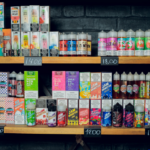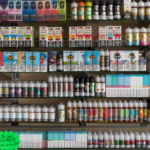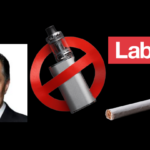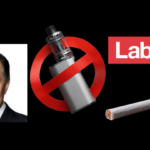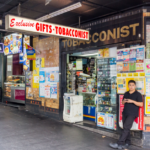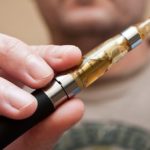Landlords to Face Prison for Permitting Use of Premises for Illegal Vape or Tobacco Sales

The New South Wales government introduced new laws which could see commercial property owners facing a maximum penalty of 12 months in prison and/or a fine of up to $165,000 for knowingly permitting a tenant to supply illicit tobacco and/or vaping products to members of the public.
The Public Health (Tobacco) Amendment (Landlord Offences) Bill 2025 (NSW) is part of a suite of reforms introduced by state, territory and the federal government ostensibly to deter the sale of illicit nicotine products through both criminal and civil sanctions.
These include amendments to the Therapeutic Goods Act 1989 (Cth) (‘TBA’) which introduced new federal vaping offences and increase penalties for existing offences that came into effect on 1 July 2024.
Some of the current criminal offences and penalties under the TBA are:
| Offence | Section | Maximum criminal penalties for individuals |
| Importing vaping goods into Australia | 41Q | 7 years in prison and/or a fine of 5000 penalty units |
| Manufacturing vaping goods in Australia | 41QA | 7 years in prison and/or a fine of 5000 penalty units |
| Unauthorised supply of vaping goods | 41QB | 7 years in prison and/or a fine of 5000 penalty units for an executive officer of a corporation or 200 penalty units for other individuals |
| Possessing at least a commercial quantity of vaping goods (a commercial quantity is at least 9 vapes, 60 vaping accessories or 400mls of liquid vape) | 41QC(1) | 2 years in prison and/or a fine of 1000 penalty units |
| Possessing at least 100 times the commercial quantity of vaping goods | 41QC(4) | 4 years in prison and/or a fine of 3000 penalty units |
| Possessing at least 1000 times the commercial quantity of vaping goods | 41QC(7) | 7 years in prison and/or a fine of 5000 penalty units |
| Retailer possessing less than a commercial quantity of vaping goods on commercial premises | 41QD | 12 months in prison and/or a fine of 500 penalty units. |
One Commonwealth penalty unit is equivalent to $330 at the time of writing.
The above offences also carry civil penalties in the form of fines for both individuals and corporations, several of which are well in excess of the fines that apply to the corresponding criminal offences.
It is important to be aware that the prosecution bears the onus of proving each ‘essential element’ of any tobacco or vaping offence, that it must also disprove to that high standard any general legal defence that may be raised on the evidence in a criminally prosecuted case, and that exceptions will also almost invariably apply – including where relevant authorisation has been obtained by way of a licence, permission, conformity assessment or consent by the Secretary of the Department of Health or otherwise, or where the products are classed as exempt therapeutic goods and supplied by an authorised pharmacist, or medical or nurse practitioner.
For its part, the New South Wales government has implemented a regime whereby it can issue closure orders to premises caught selling illicit tobacco or vaping products without a licence, which can either be for a short term of up to 90 days or a long term of up to 12 months.
It has also enacted a range of new tobacco and vaping offences and broadened the scope of existing offences, as well as increased the penalties that apply.
It has additionally introduced a regime which authorises certain medical professionals to prescribe vapes for therapeutic purposes, and pharmacies to supply approved vaping products.
Rationale for new offence
New South Wales Minister for Health, Ryan Parks, has issued a statement in relation to the proposed new offence which potentially criminalises commercial property owners of premises that sell illicit tobacco and/or vapes.
“This bill recognises and reinforces the important role that landlords need to play against the sale of illegal tobacco and vapes”, he states.
“This measure will further minimise the opportunities for illegal tobacco and vape sales to flourish.
“We know that the vast majority of landlords do the right thing – but those bad actors out there not only undermine legitimate business, they also expose communities to criminal activity.
“These penalties are the result of extensive consultation and will strike a fair and reasonable balance that ensures we target landlords who are knowingly permitting illegal activity.”
The war on vaping
There has been a marked increase in the seizure of illegal vapes over the past five years.
In that regard, the New South Wales government reports the following figures in relation to the number of products seized over that period:
| Quarter | Number of products seized |
| 1 April – 30 June 2025 | 35,998 |
| 1 January – 31 March 2025 | 55,597* |
| 1 October – 31 December 2024 | 57,274* |
| 1 July – 30 September 2024 | 49,686* |
| 1 April – 30 June 2024 | 67,351* |
| 1 January – 31 March 2024 | 122,661 |
| 1 October – 31 December 2023 | 82,837 |
| 1 July – 30 September 2023 | 153,168 |
| 1 April – 30 June 2023 | 100,629 |
| 1 January – 31 March 2023 | 95,551 |
| 1 October – 31 December 2022 | 72,732 |
| 1 July – 30 September 2022 | 50,543 |
| 1 April – 30 June 2022 | 26,672 |
| 1 January – 31 March 2022 | 34,825 |
| 1 October – 31 December 2021 | 9,587 |
| 1 July – 30 September 2021 | 7,677 |
| 1 April – 30 June 2021 | 34,865 |
| 1 January – 31 March 2021 | 24,067 |
| 1 October – 31 December 2020 | 18,900 |
| 1 July – 30 September 2020 | 6,554 |
| 1 April – 30 June 2020 | 1,801 |
| 1 January – 31 March 2020 | 2,866 |
The debate
There is heated debate about whether the heavy restrictions placed on vaping products and exorbitant taxes on tobacco products are in fact beneficial to the community.
Indeed, there are several nations that promote the use of vapes as a stop-smoking aid, including Canada, New Zealand, Denmark, Germany and the United Kingdom – viewing regulated vapes as a less harmful alternative to smoking tobacco.
Many in Australia share this view, seeing e-cigarettes as a useful way to wean off a smoking addiction.
On the other hand, there are also many – including Australian state, territory and federal governments – that are of the view that legalising vapes will likely lead to long term harm; potentially addicting our youths to substances that are harmful to our health when they would not otherwise have become addicted.
In terms of the price of tobacco, there is little doubt that exorbitant taxes have contributed to the rise in the sale of cheap, black market cigarettes and the harms that go with it – culminating in the ‘tobacco wars’ and associated violence of recent years.
Despite the debate, there is little sign of Australian governmental wars on tobacco and vapes subsiding anytime soon.

